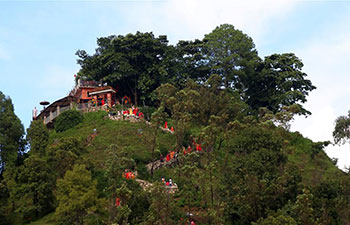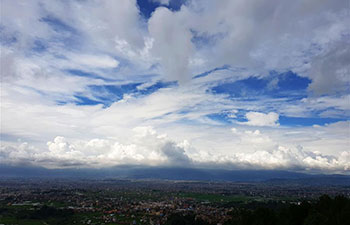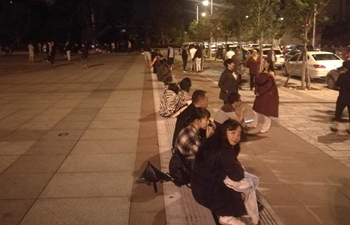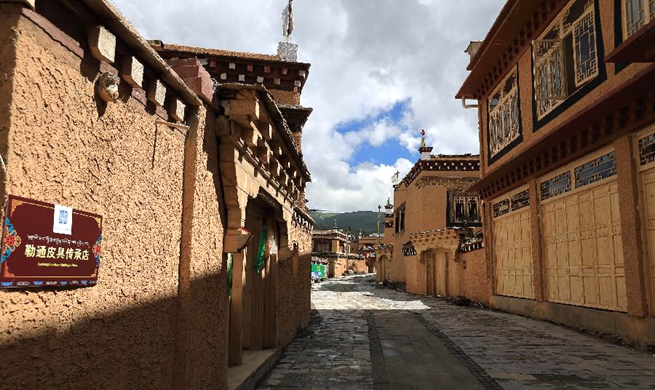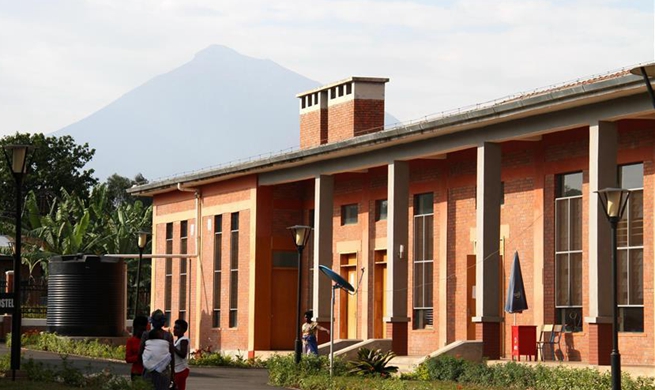KATHMANDU, Aug. 14 (Xinhua) -- A fleet of 17 new low-emission and high-tech buses started operation in Nepal's Kathmandu on Tuesday to help reduce congestion and pollution in the capital.
The initiative is part of the Kathmandu Sustainable Urban Transport Project of the Asian Development Bank (ADB), which is promoting the use of low-emission vehicles and helping improve mass transport in the Kathmandu valley.
Issuing a statement on Tuesday, ADB said that the 25-seater buses have been used on a pilot route from Tuesday, replacing the aging 26 micro-buses and 35 three-wheelers that ply the route.
"ADB is pleased to work on this project to provide the city with a more efficient urban transport system. The effort to improve the urban transport system is being led by a public-private partnership, which will be the key to the system's sustainability in the long run," ADB Country Director for Nepal Mukhtor Khamudkhanov was quoted in the statement.
Population growth, rapid urbanization, and the increasing number of vehicles in the Kathmandu Valley have led to traffic congestion, road accidents and environmental degradation among others in the recent years.
Air quality in the Himalayan country is often regarded as the worst, while Nepal is ranked at the bottom among the 180 countries surveyed in terms of air-quality globally.
Kathmandu has been facing severe air pollution in the past few years due to smoke emission from vehicles, industries, brick kilns and increasing haphazard road expansion projects.
"The new buses use Euro-4 emission standard engines that reduce the levels of harmful exhaust emissions such as carbon monoxide. They also use a Global Positioning System (GPS) enabling passengers to track the buses in real time," reads the statement.
The total cost of this urban transport project is 22.37 million U.S. dollars, with the government of Nepal contributing 7.9 million U.S. dollars.
According to ADB, the total cost of the implementation of the bus service operation in the pilot route, including the facilities of e-ticketing, GPS tracking, and other communication equipment is 900,000 U.S. dollars.
The project is helping to improve traffic management in the city center by supporting Nepal's Department of Transport Management to build up knowledge and skills in urban transport management.


